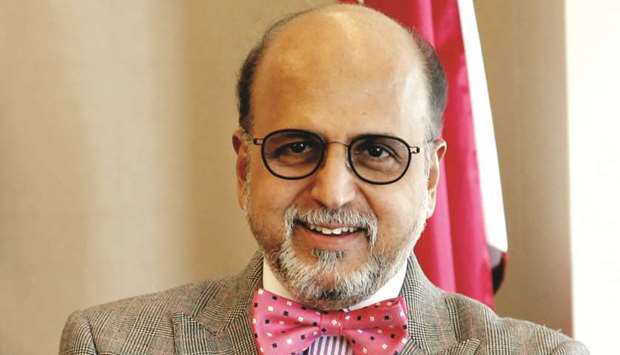In Qatar’s office supply sector, the majority of upcoming offerings will be concentrated in the Lusail Marina district. The Qatar Petroleum district in West Bay is also expected to open in the near future. New premium accommodation has been released in Msheireb.
Offices in areas such as C-Ring Road, Old Salata and Al Saad are now available at monthly rents of between QR80 and QR100 per sqm, depending on the features and location.
In the residential property market, rent-free periods of between two and three months are now commonplace for new leases due to the amount of available accommodation on the market. Tenants are also seeing their rents fall on renewal of their leases to current market levels.
In the hospitality sector, overall supply of hotel keys has increased by more than 1,000 rooms in the past year. While this has had an impact on room revenues, occupancy rates have remained relatively stable due to the increase in domestic tourism and the increasing popularity of hotel apartments.
In the retail segment, outdoor destinations such as Medina Centrale and Porto Arabia on The Pearl, Katara Cultural Village and Souq Waqif provide significant leasable retail accommodation, which all comprise a high percentage of food and beverage outlets.
New malls, which are scheduled to be completed this year, include Doha Mall (Abu Hamour), Katara Mall (Al Qassar), Northgate Mall (North Doha), La Galleria (Msheireb) and Doha Souq (Al Mirqab).
In the first quarter of 2019, Qatar’s banking sector witnessed a lending growth of close to 4% YTD to the real estate sector. Last week, the US Federal Reserve officials voted to hold interest rates steady, as a lack of inflation pressure outweighed an economy that otherwise is growing strongly.
On a 12-month basis, overall inflation and inflation for items other than food and energy have declined and are running below 2%. The Fed held its benchmark rate in a target between 2.25% and 2.5%. The US central bank indicated this week that it was not ready to cut — or raise — interest rates, and Fed Chairman Jerome H Powell said he expects price gains to eventually emerge. The Fed hiked rates by 25 basis points in December 2018 and the Qatar Central Bank (QCB) announced a 25 basis points increase on the QCB Deposit Rate (QCBDR).
The second national development strategy highlights the need for economic diversification. The strategy identifies priority sectors including manufacturing, financial services, and tourism, while emphasising competitiveness and the role of the private sector.
The Private Sector Committee is promoting public-private partnership in areas such as food security, manufacturing, health, and education.
In April 2019, the Qatar Cabinet had also approved a draft law on partnership between public and private sectors. The new investment law provides various incentives for non-Qatari investors such as the allocation of land to establish his/her project through rent or usufruct; import necessary equipment to establish, operate and expand his investment; exemptions from income tax, customs duties on imports of machinery and equipment necessary for establishment; and exemption from paying customs duties on imports of raw material and semi-manufactured goods. Ashghal (the Public Works Authority) continues to sign new contracts for projects across Qatar to develop infrastructure for citizen-owned land plots and the local road network. The recently concluded ‘Project Qatar 2019’ has provided a glimpse of the various opportunities in the infrastructure space in Qatar as well.
These developments are going to give further impetus to the non–hydrocarbon diversification in Qatar. This will also lead to improvement in the activity levels in the property sector.
* The author is Group CEO of Doha Bank.

